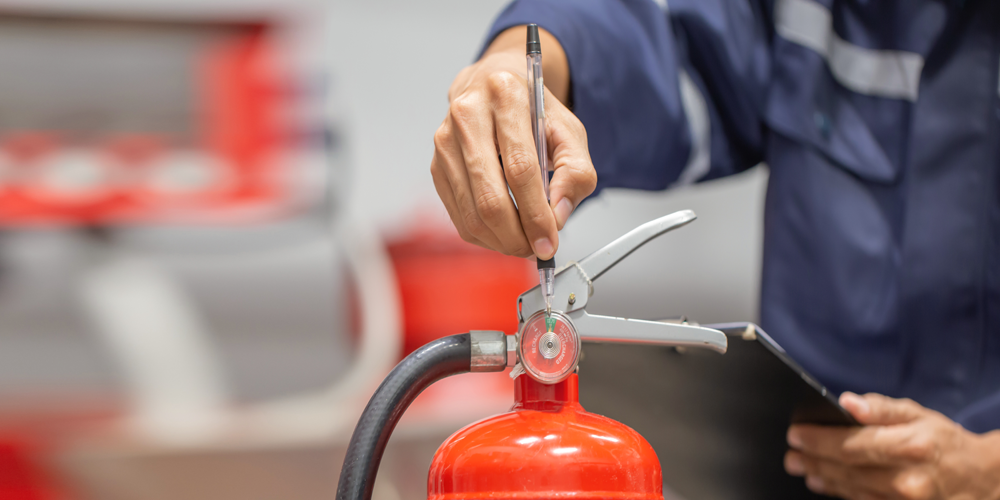
Essential Guide to Buying Fire Safety Equipment: Protecting Lives and Property
Introduction: Fire safety is a critical aspect of protecting lives and property in any environment. Whether it’s a residential home, a commercial building, or an industrial facility, having the right fire safety equipment can mean the difference between a manageable incident and a catastrophic disaster. In this guide, we’ll explore the key factors to consider when buying fire safety equipment, from fire extinguishers to smoke detectors and beyond.
Understanding Fire Hazards: Before delving into the specifics of fire safety equipment, it’s crucial to understand the different types of fire hazards and the environments in which they may occur. Fires can be categorized into several classes based on the materials involved, such as Class A (ordinary combustibles like wood and paper), Class B (flammable liquids and gases), Class C (electrical fires), and Class K (cooking oils and fats). Each class requires a different approach to extinguishment, so it’s essential to assess the potential fire risks in your environment before purchasing equipment.
Types of Fire Safety Equipment:
1. Fire Extinguishers:
• Fire extinguishers are one of the most fundamental pieces of fire safety equipment. They come in various types, including water, foam, dry chemical, CO2, and specialized extinguishers for specific hazards like kitchen fires.
• Consider the size and weight of the extinguisher, as well as its discharge time and effectiveness against different types of fires.
• Placement is crucial. Ensure that extinguishers are easily accessible and strategically located throughout the building, following local fire codes and regulations.
2. Smoke Detectors and Alarms:
• Smoke detectors are essential for early fire detection, giving occupants precious time to evacuate safely. There are ionization smoke detectors, which are more responsive to flaming fires, and photoelectric smoke detectors, which are better at detecting smoldering fires.
• Combination smoke and carbon monoxide detectors offer added protection against both fire and the silent killer, carbon monoxide.
• Install smoke detectors in every bedroom, outside each sleeping area, and on every level of the home or building. Regular testing and maintenance are crucial to ensure they’re functioning correctly.
3. Fire Suppression Systems:
• In larger buildings or high-risk environments, automatic fire suppression systems, such as sprinklers, can provide rapid fire control and containment.
• These systems typically require professional installation and maintenance to ensure proper functioning when needed.
4. Fire Blankets:
• Fire blankets are useful for smothering small fires or wrapping around a person to protect them while evacuating a burning building.
• They are particularly effective for kitchen fires involving cooking oils or grease.
5. Emergency Lighting:
• In the event of a fire, visibility can be severely compromised by smoke and darkness. Emergency lighting systems ensure that escape routes remain illuminated, aiding evacuation efforts.
• Battery-powered or backup lighting systems are essential in case of power outages during a fire emergency.
Factors to Consider When Buying Fire Safety Equipment:
1. Compliance with Regulations:
• Ensure that all fire safety equipment meets relevant regulations and standards set forth by local authorities or regulatory bodies.
2. Quality and Reliability:
• Invest in high-quality equipment from reputable manufacturers to ensure reliability when it matters most.
• Look for products that have undergone rigorous testing and certification processes.
3. Maintenance Requirements:
• Consider the maintenance requirements of the equipment, including regular inspections, testing, and servicing.
• Some equipment, such as fire extinguishers, may require annual inspections and recharge or replacement as needed.
4. Training and Education:
• Proper training in the use of fire safety equipment is essential for effective response in an emergency.
• Provide training to occupants on how to use extinguishers, evacuate safely, and respond to fire alarms.
5. Cost:
• While cost is a factor, prioritize quality and effectiveness when purchasing fire safety equipment.
• Consider the long-term savings in potential property damage and, more importantly, lives saved.
Investing in fire safety equipment is an essential step in protecting lives and property from the devastating effects of fire. By understanding the different types of equipment available, assessing fire hazards, and considering factors such as compliance, quality, maintenance, training, and cost, you can make informed decisions to ensure the safety of your home, workplace, or community.
Remember, when it comes to fire safety, preparedness is key, and having the right equipment can make all the difference in an emergency.


